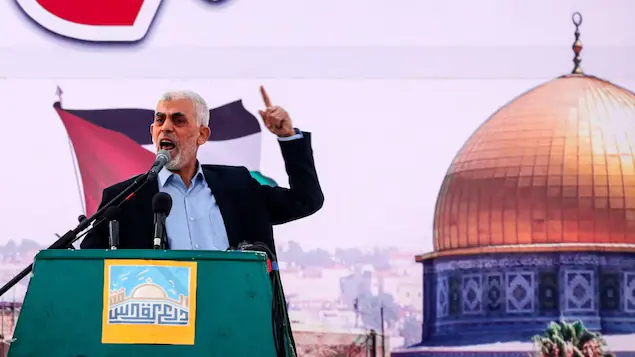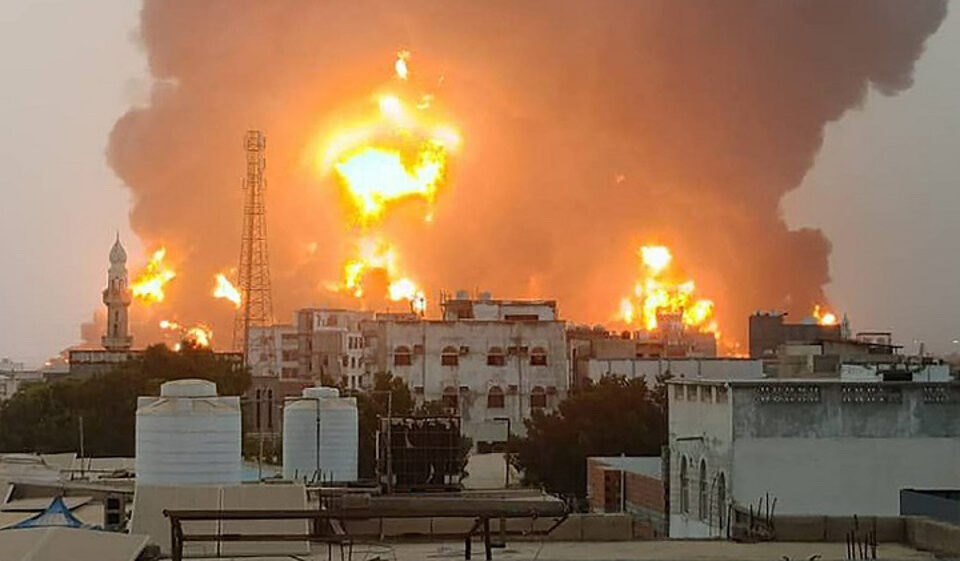
President Biden has decided to Eliminate an additional $4.5 billion in student loans
October 17, 2024
North Korea to Deploy Troops in Support of Russia, Seoul Says
October 18, 2024“Israeli forces report the killing of a senior Hamas leader Yahya Sinwar, in the ongoing conflict in Gaza.”

“Yahya Sinwar, killed during an Israeli military operation in Gaza.”

Israel has confirmed that its forces in Gaza killed Yahya Sinwar, the leader of Hamas and the mastermind behind the 7 October 2023 attacks, which left around 1,200 Israelis dead and 251 people taken hostage. After the attack, Sinwar, the most wanted man in Israel, went into hiding, likely in Gaza’s tunnel network, avoiding detection as Israeli forces, using drones, surveillance technology, and informants, searched for him. The Israeli Defense Forces (IDF) believed that he might use Israeli hostages as human shields, but soldiers found and killed him in southern Gaza without any hostages present. His identity was confirmed through fingerprint and dental records.
Israeli Prime Minister Benjamin Netanyahu hailed the operation, declaring, “As we promised, we settled the score with him.” Sinwar’s death is part of a broader Israeli campaign to eliminate senior Hamas leaders following the October 7 attack. Among those killed was Mohammed Deif, leader of Hamas’s military wing, who reportedly planned the attack. Analysts have long viewed Sinwar as a key figure in Hamas’s leadership, responsible for some of its most violent actions.
The family of Sinwar were refugees from Ashkelon following the 1948 displacement of Palestinians, known as “al-Naqba.” He grew up amid the poverty of the camp and was drawn to the Islamist movement. Sinwar joined Hamas in the 1980s and quickly rose through the ranks. He established Hamas’s feared internal security apparatus, al-Majd, known for brutally punishing those suspected of collaborating with Israel or committing moral offenses. Israeli officials believe Sinwar personally carried out many killings.
In 1988, Sinwar was arrested for his role in the abduction and killing of two Israeli soldiers and was sentenced to four life terms in prison. During his 22 years in Israeli prisons, Sinwar’s leadership style solidified. He became the de facto leader among prisoners, negotiating with authorities and enforcing order. Israeli assessments during this time described him as a ruthless and cunning figure with the ability to inspire fear and loyalty in equal measure. After his release in 2011, part of a prisoner exchange that freed Israeli soldier Gilad Shalit, Sinwar quickly resumed his role within Hamas, eventually becoming the head of the movement in Gaza.
Sinwar’s leadership was marked by both violence and pragmatism. While he ordered violent acts, including calling for the kidnapping of Israeli soldiers, he also supported temporary ceasefires and prisoner exchanges when it suited Hamas’s goals. His close ties with Hamas’s military wing and with Iran, which provides the group with financial and military support, helped him strengthen Hamas’s military capabilities, including its stockpile of rockets.
Sinwar’s death is a significant blow to Hamas, as he was seen as a central figure linking its political and military wings. Many in Israel’s defense establishment believe it was a mistake to release him in the 2011 prisoner exchange, as he resumed leadership and continued to fuel Hamas’s violent campaigns. Analysts have identified him as a key figure in the 7 October attacks, alongside Mohammed Deif, who was killed earlier in an Israeli airstrike.
Sinwar’s killing comes at a critical time for Hamas and the broader conflict. Israel’s military operations in Gaza have caused widespread devastation, and Hamas now faces a choice: to seek a ceasefire or continue fighting. U.S. Secretary of State Antony Blinken recently suggested that a ceasefire deal was close, with 90% of the conditions agreed upon. However, Sinwar’s death could either hasten the deal or drive Hamas to further resistance, making compromise more difficult.
Sinwar’s rise from the impoverished Khan Younis refugee camp to Hamas’s top leader reflects his complex character—ruthless, cunning, and committed to Hamas’s goal of destroying Israel. While some saw him as a pragmatic leader capable of making temporary deals with Israel, others viewed him as uncompromising, particularly in his long-standing relationship with Iran. In a 2021 speech, Sinwar credited Iran for Hamas’s military capabilities, acknowledging its crucial support in helping Hamas develop the weapons used against Israel.
Despite the loss of their leader, Hamas remains a powerful force in Gaza, but Sinwar’s death leaves the group at a crossroads. Hamas must decide whether to negotiate a deal that ends the devastating Israeli military operations or continue its armed resistance, even as the conflict takes a toll on Palestinian civilians.
For Israel, Sinwar’s killing is a symbolic and strategic victory. However, the broader conflict remains unresolved, and it is unclear how Hamas will respond to the loss of its leader or how it will affect ceasefire negotiations. Sinwar’s death could offer an opportunity to complete a ceasefire deal and bring hostages home, or it could deepen the divide, driving Hamas further from compromise.
Sinwar’s legacy, marked by violence, leadership, and a deep commitment to Hamas’s cause, will undoubtedly shape the future direction of Hamas, even after his death.

